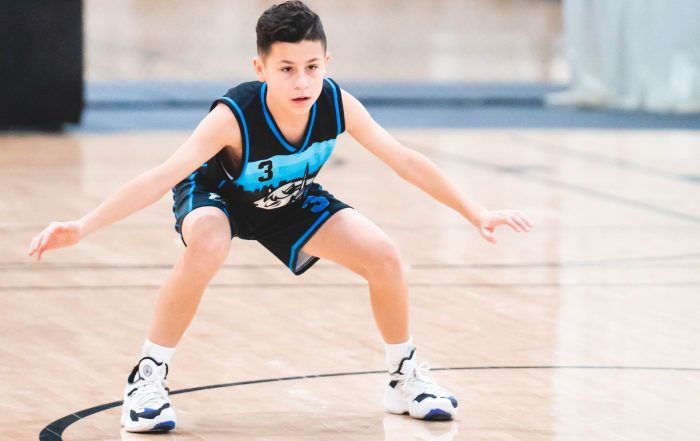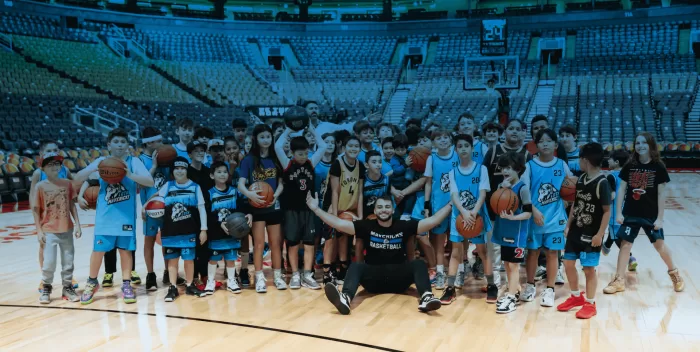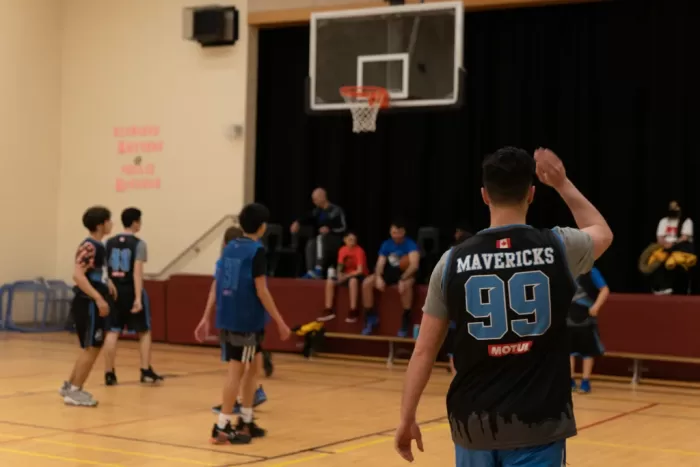How Basketball Helps Develop Leadership Skills

People who exhibit good leadership qualities inspire others. They teach. They model desired behaviors. They accept the responsibilities that come along with leadership, and they take accountability when things go awry. They exhibit honor. They are important for society to function. Too often, however, people in leadership positions don’t show honor. They want all the power and none of the responsibility, and they use their positions to solidify personal gain rather than leading the groups for whom they are responsible.
In the game of basketball, five players must act as a single unit to achieve success. Five individuals, no matter how talented, will almost always fail in their quest to win games. Generally, this is because each individual seeks separate glory. The team’s glory is secondary. Teams that actually act like teams and work together to achieve are the ones that are successful. As an example of each kind of team, take the 2024 Boston Celtics as the team and the 2013 New York Knicks as the group of individuals. The Celtics were one of the great teams in NBA history while the Knicks only won 37 games. In fact, many teams with the most talent do worse than other teams. Narcissism destroys while leadership enriches.
Important Ways Basketball Develops Leadership
You have to communicate while on the court. You can’t say, “Hey, Joe, Sandy is going to cut to the basket and then kick out to Jeff for the three,” because it takes far too long to say. Instead, if you have a set defensive play that covers that kind of kickout, the captain calls out that defensive play, and the players know where to go on the court to execute the play. It’s important to learn efficiency in communication. At Gettysburg, Edward Everett spoke for two hours while Abraham Lincoln spoke for roughly two minutes. Everett was the leading orator of the day, but which one do we remember?
You also have to make decisions quickly. After all, there’s a shot clock. The famous paraphrased quote from Cato is, “He who hesitates is lost,” and that applies to basketball. Leaders often have to make quick decisions in life.
The whole point of being a team is to be a team. By striving together, the team becomes greater than the sum of its parts. That’s why narcissism lessens a team’s power. It creates teams that are less than the sum of their parts.
Leaders also comfort and cajole when things go wrong. They never berate for the sake of finding fault. Great leaders say, “This is what went wrong, and this is how we fix it.” Bad leaders say, “Jones screwed up, so to win, we have to be less like Jones.” Fixing what went wrong is far more important than blaming who went wrong. If a change needs to be made, then the change should be made without extra fanfare. For example, if you have to bench a starter for one reason or another, then simply bench the player without a big brouhaha.
Leadership Development Strategies
When you have players who exhibit raw leadership potential, then you can teach them to be effective. For example, model the right kind of behavior you want to see when you teach them. “Do as I say and not as I do” is a terrible model for teaching, especially for teaching leadership. In short, lead the players the way you want the players to lead. Teach them the decision-making skills they need to be successful on the court. Also, teach them to communicate with a few words.
Real-Life Examples
Red Auerbach pulled off what is probably the greatest trade in the history of North American sports: He traded the Ice Capades for Bill Russell. Russell joined the Celtics during the height of the Civil Rights Movement. Russell always spoke out against injustice and exhibited the utmost integrity. In the same way that he could dominate a game without scoring a single point, he could lead without saying a single word. Auerbach saw not only Russell’s skills but also his leadership and other intangibles. That’s why he added him to an already powerful Boston Celtics team. Almost seven decades later, Jayson Tatum exhibited the same kind of leadership when he said, “I’ve been here before, and we didn’t win. We’re so close to what we’re trying to accomplish. Why would I let my ego or my need to score all the points get in the way of that?” That’s more words than Russell usually said, but the qualities of leadership are the same.
Overcoming Challenges
Sometimes, even with the best leadership, things don’t fall into place. Someone hits a full-court shot to beat you. You get clotheslined, yet the ref says nothing. You take what would be the winning shot, and you miss. Or, you come back from injury, play two minutes, and get injured again. Part of being a good leader is still to exhibit all the same qualities you do when things are going well. The other part of being a good leader is realizing that you’re human. When something bad happens, you might react badly. You could scream at the ref for the missed call because you have just reached the end of your rope. Or, you might blame others for your own shortcomings. These things happen because players are human beings with all the foibles and faults that go along with that.
Great leaders will eventually say, “You know what? This was my fault. I messed up, and then I messed up again. I’m sorry that my actions both hurt the team itself and the team chemistry. I promise to work harder, so let’s ‘go gettem!'” By taking accountability, apologizing in a heartfelt manner for mistakes, and striving to improve into the future, the leader acknowledges mistakes and focuses on positives to come.
Develop your Leadership Skills
Resilience, honesty, integrity, accountability, and overall flexibility are all top qualities of a leader. Through team dynamics, you can develop all of these things in the players you deem to be worthy of leadership training. Here at the GTA Mavericks, we stress all of these qualities in not only leadership training but also in simply playing the game of basketball the way it should be played. Contact us to learn more!
About author: Kayden Fortin
You Might Also Like
Top Benefits of Playing Basketball
Basketball is one of the most popular sports worldwide, loved by players of all ages. [...]
Why Join a Basketball League in Vaughan?
Basketball is more than just a game—it's a great way to stay active, connect with [...]
Essential Resources for Safe and Accessible Sport
At GTA Mavericks, we're committed to creating a safe, supportive, and accessible environment for all [...]






